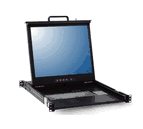- Products
- Rackmount LCD Keyboard
- Rackmount LCD Monitors
- Industrial LCD Displays
- Broadcasting LCD
- Kiosks
- Open Frame Touch Monitors
- Chassis/Wall Mount LCD
- Panel Mount LCD
- Flush Mount LCD
- LCD Stainless Steel Monitor
- NEMA 4X (IP65) Displays PC
- NEMA 4X (IP65/IP66) Displays
- NEMA 6X (IP67) Displays
- SunLight Readable LCD
- All-Weather Outdoor LCD
- Panel PC (5.6"-43")
- All in One PC
- Touch Screen Display
- Rugged Industrial LCD/PC
- Digital Signage LCD
- LED Signage Display
- Military Rugged LCD
- Marine Rugged LCD
- Tablet Rugged PC
- Medical LCD Display
- Medical Panel PC
- Industrial Embedded Computer
- LCD Wall/Ceiling Mounts
- Micro Environment Monitoring System
- Industries
- Support
- Knowledge Base
- Technical Support
- Sales
- Frequently Asked Questions (FAQ)
- Video Gallery
- iTech Products Article
- Product Catalog
- Quick Download
- AUO Panel
- AVP Rackmount Series
- BCH and BCPC Series
- BHK Series
- BMPC Drivers
- CCH/CCPC/COP/CPM Series
- DigiView/ DKP series
- DCH/DVM/DCP Series Guides
- DHK series
- DMM Series
- DOD Series
- EIRMT IR touch Drivers
- ELD
- E series Intel Industrial Motherboard Mini-ITX
- EOP/ECH/EPM Series
- FD Series
- GOP/GCH/GSK Series
- KPC/KSP/KCH Series
- Netview Accessories
- Nmil Series
- OE Series
- PNPC Series
- QPC Series
- SCH series
- Touchscreen System
- VCPC/VDPC/VMPC/VPC Series
- WRD/WPM/WMRM Series
- YCH/YPM/YOP series
- Contact Us
- Inquiry
- News
- About Us
- Testimonial
What is UL Listed Rackmount LCD Monitor KVM Keyboard Drawer?
The UL stands for "Underwriters Laboratory". It used to be an Insurance Industry organization, but now it is independent and non-profit. It tests electrical components and equipment for potential hazards. When something is UL-listed, that means that the UL has tested the device, and it meets their requirements for safety - ie: fire or shock hazard. It doesn't necessarily mean that the device actually does what it's supposed to, just that it probably won't kill you.
The UL does not have power of law in the U.S. -- you are permitted to buy and install non-UL-listed devices. However, insurance policies sometimes have clauses in them that will limit their liability in case of a claim made in response to the failure of a non-UL-listed device. Furthermore, in many situations the NEC will require that a wiring component used for a specific purpose is UL-listed for that purpose. Indirectly, this means that certain parts of your wiring must be UL-listed before an inspector will approve it and/or occupancy permits issued.






